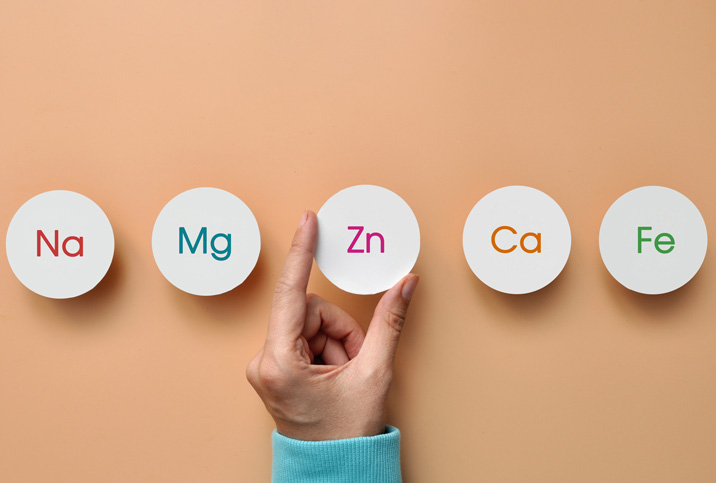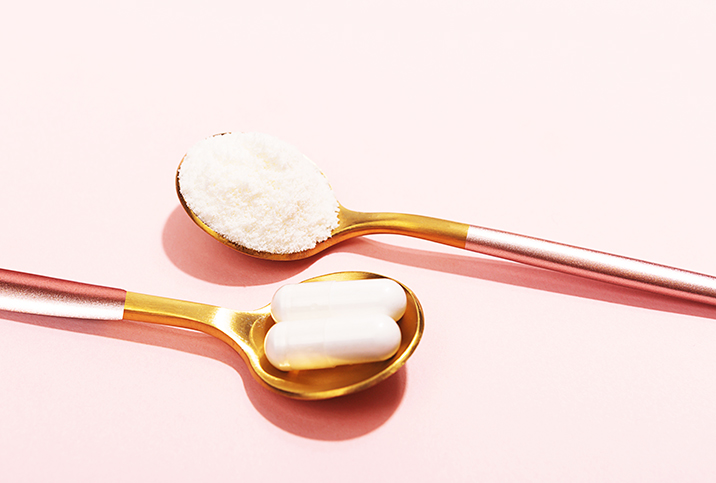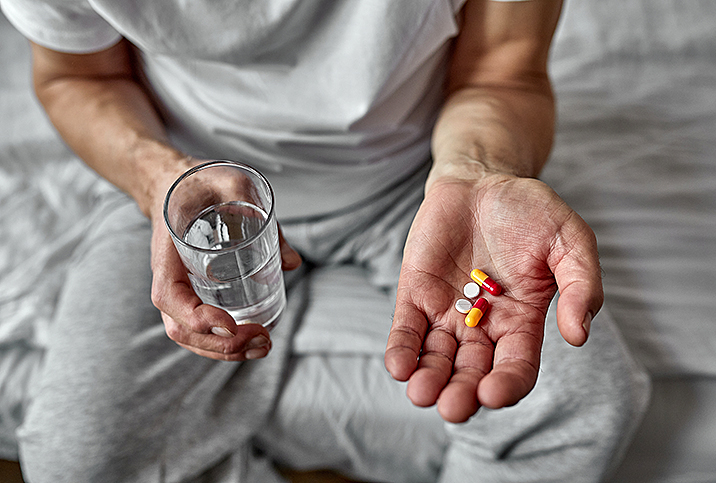Bet You Don't Know the Ties Between Zinc and Sexual Function

You might not know it, but zinc, the mineral found at the tail end of the alphabet, plays an important role in male sexual health. It's essential to erections, helps keep the prostate healthy and boosts the immune system. You should understand the ties between zinc and sexual function.
"Zinc is essential in cell growth and proliferation," said Lesley Gilchrist, M.Sc., a registered midwife from Harrogate, England. "It is a hormone balancer helping to regulate testosterone [among other hormones] and, therefore, sexual health and function. It also acts as an antioxidant."
Gilchrist added that zinc is vital to maintaining the lining of the testes and has antibacterial properties relating to the male urinary system, so it helps keep the prostate happy.
"Zinc helps the body have a healthy immune system and is also a driver of a healthy libido," she added.
Zinc and the body
Zinc is an essential mineral used by the body. The many ways the body uses it include:
- Making new cells and enzymes
- Facilitating normal growth and body development
- Developing and functioning of the immune system
- Processing carbohydrates, fats and protein in food
- Keeping skin healthy and aiding in wound healing
- Maintaining healthy bones
- Maintaining the senses of taste and smell
- Sustaining sexual health
OK, so how are you supposed to know if your zinc levels are healthy? The symptoms of zinc deficiency can include:
- Decreased libido
- Hair loss
- Erectile dysfunction (ED)
- Stunted growth
- Skin rashes
- Diarrhea
- Lowered immunity
"A man may complain about a reduction in sex drive due to decreased testosterone levels, so clinicians should pay attention to zinc levels in men dealing with sexual dysfunction," said Edibel Quintero, a registered dietitian from Venezuela and a medical content author at Health Reporter.
Zinc is vital to many bodily functions, but the body can't produce it on its own.
"Zinc is the second most abundant trace element in human beings," Gilchrist said. "However, your body cannot store it in sufficient quantities. So it must be taken in the diet regularly so we can use it in the various body processes."
Gilchrist said the average human body contains 2,000 to 3,000 milligrams of zinc and it is found in every body system and organ. This limited amount is distributed in a tightly controlled interplay between cells to ensure the exact amount of zinc is available to balance the huge variety of body processes with which it is involved.
"As humans, to maintain zinc homeostasis [stability], it is vital that we consume enough of it daily to compensate for the amount used and to ensure the body has the amount it needs," Gilchrist added.
Zinc and male fertility
Zinc is necessary for a healthy reproductive system and supports male fertility in several ways.
"Zinc is essential for producing healthy, good-quality sperm and seminal fluid in good concentrations," Gilchrist said, adding that in several studies, zinc deficiency correlated with smaller testes that produced poor-quality sperm in low amounts and with more irregular shapes and reduced motility and function.
"Zinc supports healthy testosterone levels," said Jessica Sepel, a clinical nutritionist and the founder of JSHealth in Sydney. "In addition, it is also great for supporting male fertility, as it improves sperm health and motility."
One line of thought postulates that the first systems affected by zinc depletion are the nonessential body processes. These include sperm production, libido and male sexual health, Gilchrist said. Anyone trying to maintain their fertility or improve their sperm count needs to ensure their zinc intake is adequate. It is one of the easier ways to improve sperm parameters.
Foods rich in zinc
"Zinc's role within the body is extensive," Sepel said. "This means that reduced dietary intake will lead to depleted zinc levels for essential processes such as immune cell function and reproduction."
Zinc is absorbed during digestion in the small intestine via a carrier mechanism, according to Gilchrist, and is predominantly bound to albumin in the blood and transferred around the body.
"We get zinc through the food we eat or the supplements we take," Gilchrist explained. "Unlike iron, which has significant stores in ferritin, zinc doesn't have a dedicated storage 'hub' in the body. You must replenish it daily to ensure the body has enough for essential processes."
According to the three clinical experts, foods high in zinc include:
- Oysters
- Meat such as beef, pork and turkey
- Seafood such as shrimp, sardines and salmon
- Eggs and dairy products
- Legumes
- Nuts and seeds, especially pumpkin seeds
- Foods fortified with zinc, such as breakfast cereals
"Interestingly, oysters as a libido-increasing food may have some basis in science," Gilchrist said. "They have by far the greatest concentration of zinc than any other food, so perhaps they really are the food of love."
It is important to note that although beans, nuts and whole grains contain zinc, the bioavailability from these foods is less than from animal foods because they contain phytates, which are a stored form of phosphorus.
"Phytates, such as those in tea and coffee, can also significantly adversely affect absorption as, of course, can smoking," Gilchrist added.
Since zinc levels are higher in animal-based foods, vegans and vegetarians need to be mindful of ensuring they consume enough zinc, since they are more likely to be zinc-deficient.
If you can't be sure about getting enough zinc in your diet, does supplementation help?
Zinc supplementation
We need to get zinc from our diet. That's a fact. So supplementation, as Sepel pointed out, is sometimes necessary in modern diets that are often low in zinc.
"Therapeutic doses of zinc can be very difficult to achieve via diet unless you eat six oysters daily," Sepel said.
Quintero added that supplements containing zinc can be a great way to increase the amount of the mineral in the body.
"Having a balanced diet is always the best way of attempting to ensure the right amount of zinc and other vitamins and minerals," Gilchrist said. "However, in modern life, this can be really challenging."
She added that high-quality supplements, balanced and scientifically proven to ensure the correct intake of zinc and other essential components for health, well-being and sexual function, can be a great help.
"If a man is trying to improve his sperm count, libido and/or sperm production, taking a supplement containing zinc is a simple and cost-effective way of improving things," Gilchrist said. "Zinc is a man's best friend."
Editor's note: These statements have not been evaluated by the Food and Drug Administration. Our medical experts advise that you consult with your primary healthcare provider before you begin using a supplement. This information is not intended to diagnose, treat, cure or prevent disease.


















